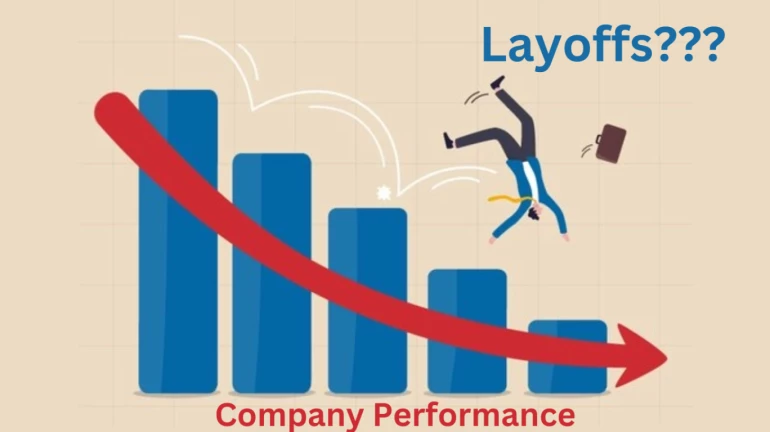
Layoffs for employees have become like a sword hanging on the head. Recently, Dell announced layoffs as it is bringing some changes in its sales department. Major companies like Twitter, Google, Amazon, Facebook Meta, and many more have taken the step of firing employees.
Job-axing leads employees to face mental and survival difficulties. Layoffs have also led to the removal of employees who have worked for more than a decade at a firm. Employees are also now coming out and stating that taking too much effort, working hard day and night, and making the workplace your second home is not a good choice as layoffs are a proven reminder that the office is not your home, as companies have fired employees without any reason.
But job-axing is not only a big challenge for employees but also for companies. After axing employees, the biggest task companies face is to maintain their good standards and results. To learn more about this enormous challenge Mumbai Live’s team spoke with city-based entrepreneurs - Jaideep Kewalramani, COO at TeamLease EdTech, and Sanjay Tiwari, Co-founder and CEO of 21CC Education.Jaideep Kewalramani said, “The decision to lay off employees is never easy. Beyond the immediate financial and operational considerations, companies grapple with a range of challenges when managing their businesses post-layoffs. One pressing concern is the loss of institutional knowledge. Experienced employees hold valuable insights into the company's history, processes, and customer relationships. Their departure can lead to a void that is not easily filled, potentially affecting the quality of products and services.”
He added, “Moreover, layoffs can have a profound impact on the morale of remaining employees. The fear of job insecurity can lead to decreased motivation, lowered productivity, and a dip in overall team spirit.”
Sanjay Tiwari emphasised that companies run on survival mode operations and said, "If you hack away 50-80% of your staff then you’re in survival mode and potentially going down to the one activity at which you’re any good as a company and which still generates revenue."
Talking about layoffs creating an impact on a company’s performance in the market, Jaideep Kewalramani said, “The relationship between layoffs and market performance is complex and nuanced. Immediate cost savings from reduced payroll expenses might seem like an appealing outcome, but it's essential to consider the potential long-term repercussions. A workforce that is stretched thin due to layoffs might struggle to maintain the same level of productivity and innovation, especially if essential roles are left unfilled. Moreover, layoffs can tarnish a company's reputation, both among potential clients and the broader community. News of layoffs can lead to negative public perception, which might erode trust and impact customer loyalty. Investors, too, might view layoffs as a sign of instability, leading to a decline in the company's stock value.”
On the contrary, Sanjay Tiwari said, “There is in some economies an inverted and one might say a twisted relationship between letting large numbers of people go and performance of the company in 'the market'. Share prices can actually rise when companies downsize. Some analysts recognize that large-scale layoffs are a sign of systemic shortcomings in the company.”
Speaking of work management, there are speculations that Artificial Intelligence (AI) will prove to be the replacement of manpower. On this, Sanjay Tiwari said, “It is estimated that AI will take over jobs that are based on repetitive tasks, so in that sense, as a technology, it could be seen as a replacement of certain employees. At the same time technology will also create entirely new work opportunities.”
Jaideep Kewalramani said, “The future of business lies in the synergy between human skills and AI capabilities. Companies that recognize the value of retaining a skilled and motivated workforce while strategically integrating AI solutions are likely to fare better in the long run. Rather than replacing employees, AI can be a complementary force that enhances their efficiency, enabling them to tackle more complex challenges. In this regard, reskilling and upskilling initiatives are crucial.”





